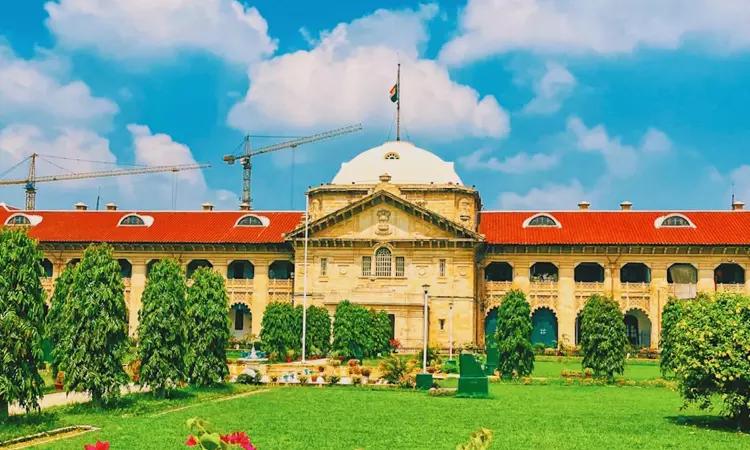The Allahabad High Court, on Friday, sentenced Advocate Ashok Pandey to six months of simple imprisonment for criminal contempt of court. The Court also barred him from practicing at the Allahabad and Lucknow Benches of the High Court for a period of three years.
The decision came from a Division Bench comprising Justice Vivek Chaudhary and Justice Brij Raj Singh, who found Pandey guilty of using abusive and scandalous language against the judges, including calling them "goondas" in open court during proceedings in 2021.
"The conduct of Advocate Ashok Pandey reflects utter disdain for the judicial process. His repeated contemptuous behavior undermines the dignity and integrity of the institution with impunity," the Bench observed.
The contempt proceedings against Pandey were initiated based on his unruly behavior on August 18, 2021. On that day, Pandey entered the courtroom in civil dress with his shirt unbuttoned, defying court norms. When advised to appear in appropriate attire, he not only refused but also questioned the Court's definition of “decent dress.”
Following this, he created a disruption in the court and used abusive language, referring to the judges as “goondas.” The Court held that such behavior amounts to scandalizing the court and attempting to lower its authority before other advocates and those present.
Earlier, on August 16, 2021, during a different hearing, Pandey had entered the courtroom without permission and uniform, raised his voice, and interrupted ongoing proceedings. As a result, the judges directed security personnel to remove him from the court and ordered him to be held in custody till 3:00 PM for reflection and possible apology.
Read also: Allahabad High Court Orders NOIDA to Compensate Assessee After Tax Was Deposited Under Wrong Head
"This unprofessionalism and forceful intrusion into judicial proceedings, especially by a practicing Advocate, is an egregious violation of courtroom protocol and discipline. It demonstrates not only disrespect towards the Bench but also an intention to disrupt and derail the course of justice."
Despite being given a chance to apologize, Pandey showed no signs of remorse. In fact, upon release from custody, he re-entered the courtroom and resumed his disruptive conduct, instead of expressing regret. This led the Court to conclude that he had no intent to reform.
Considering his consistent defiance since 2003, the Court initiated suo motu contempt proceedings, citing a pattern of behavior aimed at undermining the court’s authority.
“He continues to disregard court orders, refuses to acknowledge the error of his ways, and shows no signs of reform,” the Bench noted, while considering his long history of misconduct.
The Court found that Pandey’s actions clearly fell under Section 2(c)(i) of the Contempt of Courts Act, 1971 – scandalizing or lowering the authority of the Court – and Section 2(c)(ii) – interference with judicial proceedings. These sections address serious misconduct affecting the administration of justice.
Moreover, as a senior member of the Awadh Bar Association, the Court emphasized that Pandey was well aware of courtroom decorum but chose to deliberately flout these norms, including his refusal to wear the proper advocate uniform and his abusive conduct.
“His behavior constituted a direct and intentional affront to the dignity and decorum of the Court,” the order stated.
Alongside the imprisonment and practice ban, Pandey was also issued a notice under Chapter XXIV Rule 11(3) of the Allahabad High Court Rules, requiring him to explain why he should not be further debarred from practicing in the High Court at Allahabad and Lucknow for the specified three-year period.
After the judgment was pronounced, Pandey made an oral request for permission/certificate for leave to appeal under Article 134(A) of the Constitution of India. However, this request was rejected by the Court.















